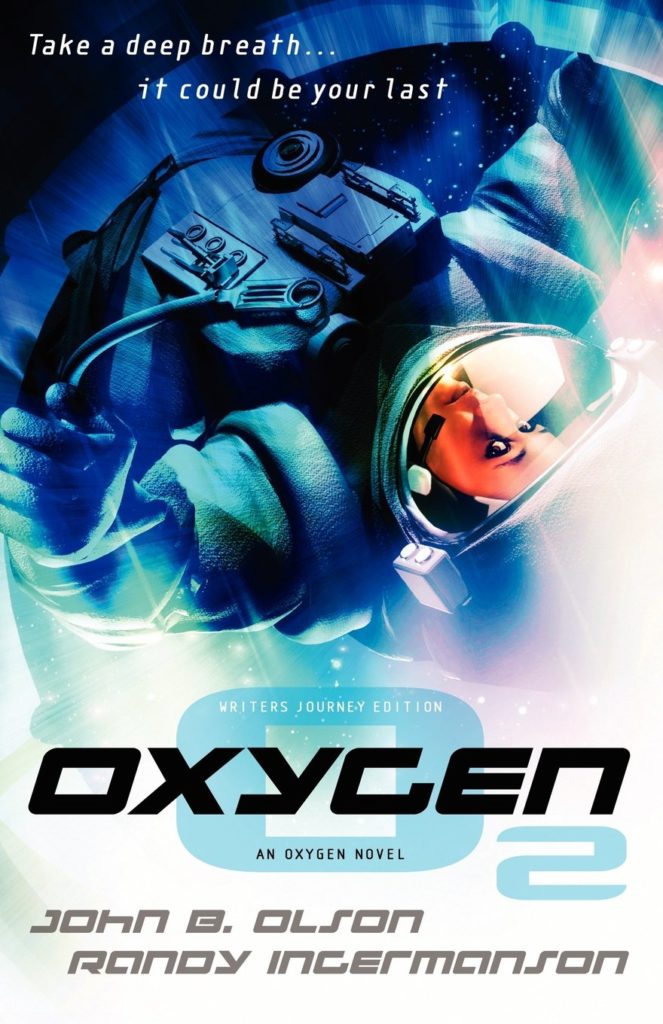15. What if NASA Finally Launched for Mars, But One Astronaut Was a Saboteur? | Oxygen with Randy Ingermanson
Podcast: Play in new window | Download (Duration: 37:41 — 35.8MB) | Embed
This time we’re going sub-orbital: Randy Ingermanson joins us to explore his foray into sci-fi with his 2001 novel Oxygen (co-written with John B. Olson).
We also spoke with Randy about his return to his aspiration to write Tom Clancy–style thrillers set in first-century Jerusalem. This year he launched his new Crown of Thorns series. Book 1, Son of Mary, released in April. It follows the biblical quest of the greatest Hero of all time.
Randy Ingermanson is the award-winning author of six novels, all written at the intersection of Science Avenue and Faith Boulevard. He earned a PhD in theoretical physics from UC Berkeley and would love to travel back in time to first-century Jerusalem. So far, the closest he’s come has been working on an archaeological dig on Mount Zion, right in the heart of the City of God. Connect with him at Ingermanson.com.
Exploring Oxygen
Lorehaven magazine reviewed Oxygen in our last issue‘s “The Best of Christian Fantasy” article:
Once every two years, Mars veers closer to Earth, and at about the same rate the red planet orbits back into the news. Usually this happens when NASA launches another probe, or SpaceX founder Elon Musk insists his latest rocket-related antics really will someday send humans to colonize other worlds.
For Christian speculative fans, however, a minor Martian invasion occurred in 2001 with the publication of Oxygen. This sci-fi thriller from John B. Olson and Randall Ingermanson followed the first human mission to Mars, starting in the year 2012.
In this now-alternate history, there was no Curiosity probe, no Olympic Games or presidential election hogging the headlines, and no grand promises for amazing NASA missions followed only by budget cuts. Instead, readers join the Ares program, in progress, to send a four-member team of actual people to Mars.
. . . Despite Oxygen’s then-futuristic starting year, the books don’t feel like sci-fi. That’s by design, the authors conclude. For humans to reach Mars, “technology is not an issue. Most of what we need exists right now, and the rest is well within our grasp” (page 366). Still, plenty of factors prevent this journey. Christians wanting to explore harder science fiction, set in our own world, might empathize. In theory, we have all we need to explore more Christian-made sci-fi realms for God’s glory. Yet until our crafts get faster and better, Oxygen (and The Fifth Man) will help satisfy this yearning.
We asked Randy questions like these:
- What is your name? What is your quest? What is your favorite color?
- How did you discover fantastical stories? And how did you start writing them?
- What’s the origin of Oxygen and its sequel, The Fifth Man?
- How do “extraterrestrial life” themes play a role in this series?
- In the last 20 years, what has changed in the world of Christian-made sci-fi?
Fantastic fans
L. G. M. shares a story about discovering fantastical stories:
My first taste of fantastical fiction was when my dad and I read The Hobbit together when I was in third grade. I finished The Lord of the Rings in high school and re-read it for a college course where our final was to go see Return of the King opening weekend. I will never lose my love for Tolkien even though I’m more of a sci-fi fan now.
L. G. names other stories, A Wrinkle in Time and two Star Trek series. Then:
Arena by Karen Hancock. I read it over the summer of my freshman year of college and couldn’t believe Christians wrote GOOD sci-fi. Arena gave me hope that I could write Christian sci-fi, and it would find an audience. I recently sent the author an email thanking her for such a cool story that I’m convinced will stick with me until I die.
L. G. also left us this five-star review on Apple Podcasts:
I love Lorehaven in general … And this podcast is just one more reason to love it! So many cool topics that no one else is talking about!
Jesse R. shares his testimony about finding fantasy:
My earliest fantastical story that blew me away. happened when I was 9 ish years old. A now well-known movie came out called Jurassic Park and to a young boy with a very very active and well-used imagination, it was the greatest movie that ever was and will be. I saw it in the theater with my best friend for his birthday. (my parents didn’t know). Seeing dinosaurs come to life and having the thrill of interacting with them and escaping from their jaws blew me away. They truly did bring dinosaurs to life and did it in a really believable way. this movie helped stretch my imagination and greatly helped influence my curiosity toward visual storytelling.
Next on Fantastical Truth
A virtual-reality enemy once said that humans are a virus. Lately we’ve heard similar statements during the pandemic. By contrast, some people (even a certain leader of the Catholic church!) has spoken about the earth in very personal terms. How should Christians view The Environment, and discern stories that want us to view creation in particular and even mystical ways?






























[…] on the Fantastical Truth podcast, we’re exploring the past-future with first-century thriller novelist Randy Ingermanson. He’s helping us explore his foray into sci-fi with his 2001 novel Oxygen (co-written with […]
Hey! I know that guy! 😉
[…] Episode 15: We explore Randy’s original foray into sci-fi with Oxygen, which follows a sabotag…. […]